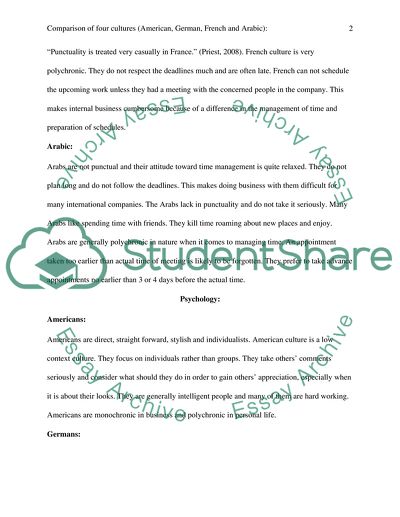Cite this document
(Four Cultures: American, German, French and Arabic Essay, n.d.)
Four Cultures: American, German, French and Arabic Essay. Retrieved from https://studentshare.org/culture/1736189-understanding-cultural-differences-by-edward-t-hall-and-mildred-reed-hall
Four Cultures: American, German, French and Arabic Essay. Retrieved from https://studentshare.org/culture/1736189-understanding-cultural-differences-by-edward-t-hall-and-mildred-reed-hall
(Four Cultures: American, German, French and Arabic Essay)
Four Cultures: American, German, French and Arabic Essay. https://studentshare.org/culture/1736189-understanding-cultural-differences-by-edward-t-hall-and-mildred-reed-hall.
Four Cultures: American, German, French and Arabic Essay. https://studentshare.org/culture/1736189-understanding-cultural-differences-by-edward-t-hall-and-mildred-reed-hall.
“Four Cultures: American, German, French and Arabic Essay”, n.d. https://studentshare.org/culture/1736189-understanding-cultural-differences-by-edward-t-hall-and-mildred-reed-hall.


